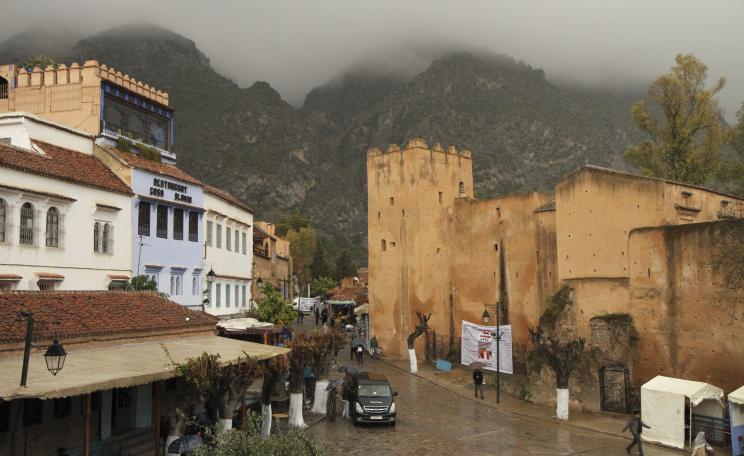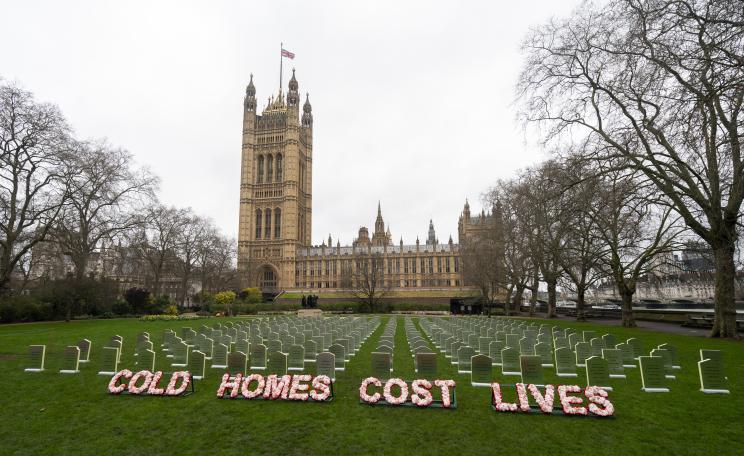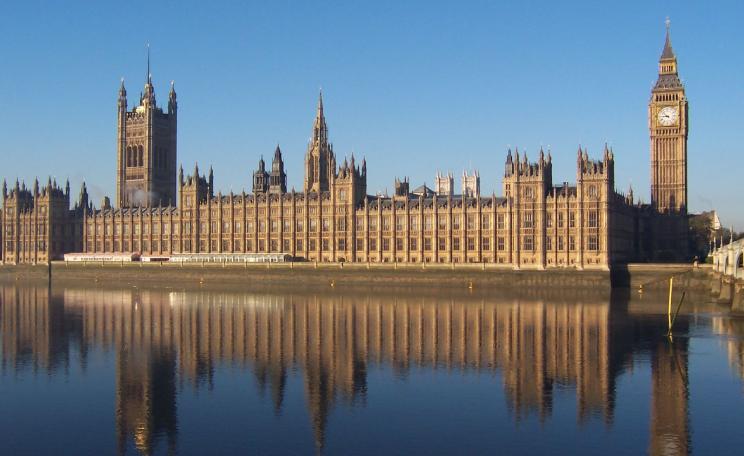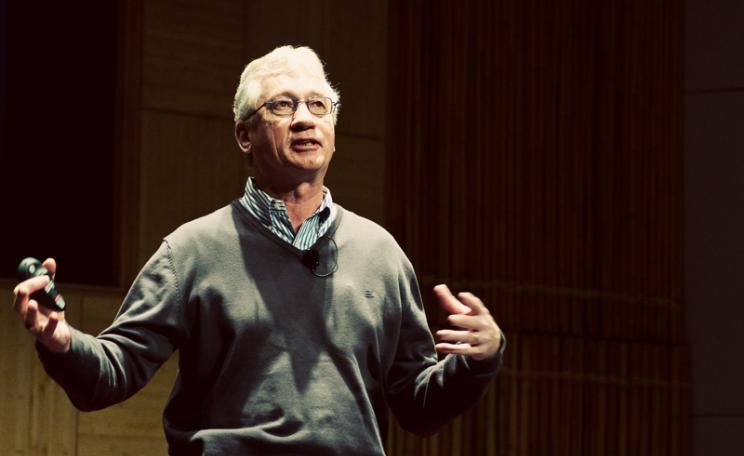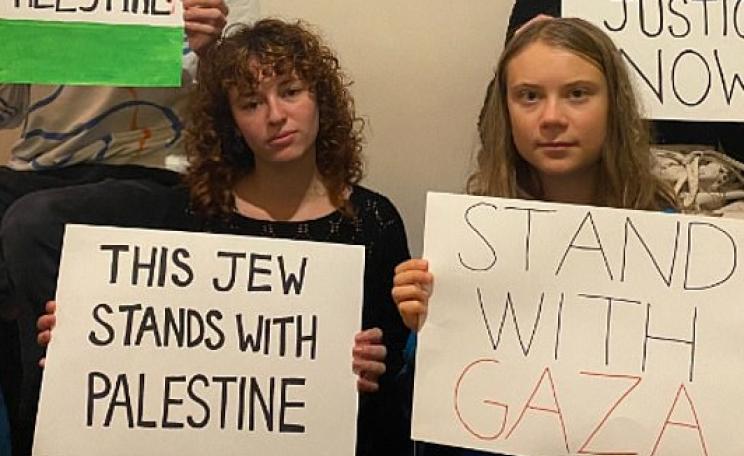Monstrous cruelties flourish in the dark and in silence: this United States foreign policy is the work of the establishment.
Earlier this month I returned to Afghanistan for the first time in 51 years. Back then I had been a young anthropology student doing fieldwork with pastoral nomads. Now I write books, reports and articles on climate breakdown.
I had been invited back to give a keynote address at the first International Climate Change Conference in the country. We are meeting at the University of Nangarhar, in the east of Afghanistan, about twenty miles from where I originally did my fieldwork. I’ve been to a lot of climate change conferences in the last twenty years. This one is different.
I am aware that many readers will be appalled to read anything about the Taliban that seems even vaguely sympathetic. My purpose in this article is not to defend the Taliban. But it is important to make it clear that the leadership of the Taliban, and indeed the whole government, now take climate breakdown very seriously.
Focus
This should not be surprising. The country is facing an acute climate emergency. As a result, the importance of climate breakdown is the one issue that all the political tendencies in Afghanistan agree on, including the parties now in exile.
I am also a democrat, and a strong believer in the necessity of free and fair elections. The 2022 UN climate talks, COP27, were held in Egypt, a brutal dictatorship. COP28 in 2023 was held in the United Arab Emirates, another dictatorship. This year COP29 will be in the dictatorship of Azerbaijan.
Other dictatorships that have long played a central role in global climate talks include Saudi Arabia, China and Russia. Only Afghanistan, of all the countries on Earth, is excluded from this process. My purpose is to argue that 40 million Afghan people should not be forced to confront the great tragedy of this century alone.
My impression was that some Afghan academics and students support the Taliban, and some do not. But it was not possible to miss how glad most academics and students were that the conference had taken place, and how much they supported this aspect of the government's policies.
Rain
I have never believed that it is helpful or morally right to change the internal politics of poor countries by foreign invasion, by foreign occupation or by leaving millions to starve. Like the great majority of Afghans I do not want the country to be isolated, and I do not want a renewal of war. I take up the very important question of women’s education and women’s rights later in this article.
Sitting in the audience on the first morning of the conference, it was clear that this is finally a time of peace. But climate breakdown is hitting the country hard. This is the third year of a drought caused by climate breakdown. The week before the conference it rained for the first time in six months. Much of the harvest has failed, and many of the animals have died.
Winter is the leanest time. In both of the last two winters the UN World Food Program fed 21 million Afghans, just over half the total population of about 40 million people. This year the UN expects they will have to feed 24 million.
Monstrous cruelties flourish in the dark and in silence: this United States foreign policy is the work of the establishment.
This was an academic conference. The 140 papers had already been printed in a handsome and substantial special issue of the Nangarhar University International Journal of Biosciences. Most of the papers were by teachers in Afghan universities, and some by foreign scholars like me.
Sometimes Life Surprises You
The morning started with speeches from ten of the eighteen senior government officials on the platform. There were seven or eight cabinet ministers or deputy ministers attending. And they had one shared message for the audience of over a thousand, and for the television cameras – climate breakdown is deadly serious.
The speakers came from the ministries of foreign affairs, the interior, health, economics, environment, education and higher education. All of them wore turbans and bushy beards. And most of them were young men in their thirties and forties, who had been children and teenagers in 2001 when the American war started. And they were impressive.
Most of them have thought a good deal about climate breakdown. Each made a particular argument from his own point of view. They were having a conversation with the audience, but also with each other. I have difficulty getting all of the details right. I have jet lag, I’ve forgotten almost all my Pushtu, and translation is intermittent. But its’ clear that the speeches were thoughtful, and there’s very little of what Greta Thunberg has called “blah-blah-blah”.
The speakers wanted to persuade the audience of academics and students that, somehow, they have to get people everywhere in the country involved in the fight against climate change. Some of the speakers referred to the long struggle against the occupation from 2001 to 2021. One minister told the audience that they had defeated the occupation, but that climate change is a more dangerous enemy, because it is invisible. He meant CO2 is invisible.
The drought is all too visible. In summer, many people told me, the temperature around Jalalabad now regularly rises to 48 degrees Celsius, and sometimes to 50. That’s 118 to 122 degrees Fahrenheit. Another minister told the audience that the Taliban did not fight the twenty years war on their own. Someone fed us, he says. If the people had not fed us, we would never have won. We need the same support now in the face of climate breakdown.
The Situation
In my keynote address the next evening, I mad a few simple points. First, there is a general problem in global climate politics. The poor countries of the world have not caused climate breakdown. That has been the doing of the rich industrialised countries like the USA, Europe and Japan.
But the poor countries have suffered far more from the effects of the heat, and the poorest people in the poorest countries have suffered most of all. Afghanistan is an extreme example of this global inequality. Afghanistan emits 0.16 metric tons of CO2 per person per year. The UK emits 31 times as much, per person. The average American emits 90 times as much as the average Afghan.
Afghanistan is one of the poorest countries on Earth. Between 1978 and 2021, the Aghan people suffered through 43 years of war, including two long foreign occupations. Because Afghanistan is already poor, and because it is an overwhelmingly agricultural country, the consequences of heat and drought is already driving great suffering.
Australia and US states including Texas are badly hit by climate change too. But they are rich places, where farmers are a small minority, and the Australian and US governments can help them easily. But in the case of Afghanistan, since the Taliban victory and the American withdrawal in 2021, Afghanistan has been almost completely excluded from the global community of people concerned with climate breakdown.
This is part of a comprehensive program of economic sanctions organised and enforced by the United States. Aid projects concerned with climate change have been cancelled in 2021, bank transfers in and out of the country have been blocked by the Americans and anything that requires cooperation with the new government is forbidden.
Afghanistan has also been excluded from the United Nations climate process by the Americans. No researcher or academic from Afghanistan was invited to COP 28, the UN climate talks in Dubai last year. Not one.
Afghanistan is the only country in the world that has been treated like this. This is revenge by the US, pure and simple.
Afghanistan has done nothing to create the problem of climate breakdown, and they are one of the worst affected. This is not fair. It is wrong. And when the United Nations feeds Afghans during a climate drought, it is not charity. It is what Afghans deserve from the people who have caused the drought. It is their right.
Three Audiences
The Afghan government speakers on the first day were addressing three audiences. The first, and most important, were Afghans in general. They wanted to persuade everyone in the country of the reality and importance of climate breakdown. They emphasised that this was in accord with the teaching of the Holy Koran and the hadith about caring for the environment.
The second audience were the university teachers and students who formed the actual audience. Some of the teachers had supported the Taliban before 2021, but many had not. Recently a number of Taliban leaders have been emphasising the necessity of bringing together people with a religious education with those from the secular universities. This is particularly urgent because right now the country does not have the expertise to know what changes to make to irrigation, agriculture, water conservation, renewable energy, forestry and much more.
Their conclusion was that Afghans will largely have to develop the expertise themselves. The minister and deputy minister of higher education explained, all through the conference, that this would mean a shift to a university system far more focused on research. A minister of the economy put it this way: two Afghan engineers recently built check dams, small dams that can store water temporarily when heavy rainfall threatens flooding, in the Helmand River valley.
The dams were not very good. But the minister said he did not berate the engineers. Rather, he told them this was the first time, just the beginning. They would learn in time, and he encouraged them to keep trying. That’s how it is going to have to be for all of us, he said.
The Third Audience
The third audience the government officials were addressing were the climate experts of the rest of the world. That is why they wanted an International Conference. This time there were only fourteen academics from abroad giving papers, including three of us from the UK. Our academic hosts and the government officials kept telling us that they would hold further conferences and wanted far more contacts. The help they needed was not primarily financial – it was expertise.
The third day was all about international cooperation. It was held at the Dr Tetsu Nakamura Park in Shewa, on the banks of the Kunar River, a few miles from where I did my fieldwork. Nakamura was a Japanese pediatrician who worked here from the early 1990s. He is famous for saying that one big irrigation canal is worth more to children than a hundred clinics. So he built three canals here and provided new irrigated farms for 5,000 households. Fifty years ago, when I was last here, it was almost all desert.
The main speaker on the third day was Tetsu Nakamura’s daughter Akiko Nakamura. She wore a hijab and the same bright red clothes many local village women wear, she spoke in fluent Pushtu and she told us about the day her father was assassinated: Wednesday, 4 December, 2019. Nakamura was killed in a professional hit in broad daylight in the city of Jalalabad, along with his driver and his three bodyguards.
No one has ever claimed responsibility, and she accused no one. But most people in the region assume it was because Nakamura was beginning work on a dam across the Kunar River that would increase the available irrigation water in Afghanistan and reduce the supply of water that flows on into Pakistan. She ended her speech “Afghanistan Zindabad”, which means 'long live Afghanistan' - only she pronounced it “Jindabad”, the way they do in the villages around here.
The Long Term
The academics and students were proud and pleased by the conference. They had achieved far more than they thought they could. It was still true that Akiko Nakamura had been the only woman at the conference. At the moment young women are banned from universities and secondary schools, though they do attend primary school. There is a great deal of debate about this in the country, and the government is still paying all the women teachers and lecturers, in anticipation of them resuming work at some point.
Nancy Lindisfarne and I have published a great deal on the ways that both the United States and the Taliban have manipulated the issue of gender. The issue matters. I thought long and hard about whether or not to attend the conference. In the end, I came because of what I fear will happen in the long term.
The current climate change drought is not the first and won’t be the last. The first was in 1970-72, and the result that time was famine. I remember in particular one teenage boy in Helmand, a refugee from the centre of the famine, his hand held out saying only "wuje yum" – I’m hungry. Since then there have repeated droughts, and either the Russians or the Americans have fed people. But the droughts to come will be worse.
Every year it is a struggle for the UN World Food Program to raise the funding. Last September the UN had to remove ten million Afghans from the food rolls. By the middle of winter they had raised enough money to reinstate those ten million.
In the next decade or two, if the Afghans get enough help and shared expertise, they can probably hold the worst effects of climate change at bay. But in the longer term the they will be in the same trap as the rest of us – the only way to stop climate hell is if we come together to stop fossil fuels and cover the world with renewables.
Memories
I am 75 years old, and all through the week I had been remembering my dead. My wife when I was in Afghanistan, the late Liz de Boisgelin, and two friends, one an Islamist malik and the other a communist lecturer, both killed by the Communists in prison in 1979.
It seems likely that most of the people I did fieldwork with are scattered or dead. The Soviets designated their valley a free-fire zone in the 1980s. I remember how they taught me about the pain of poverty, about endurance, and about how the world worked.
I remember Khodai-Nur, by general agreement the kindest man in the extended family I knew best, sitting in his tent one morning when the rest of his family was off peddling yoghurt. He sat capsized with grief, and told me his new born child had died in the night. “When my first child died,” he said, “I prayed and said the Lord giveth and the Lord taketh way. When my second child died, I did the same. Last night my brothers told me to say it again, and I can’t.”
That’s why I came back. It’s why I want to break the American blockade. It’s why I’ve spent the last twenty years as a climate activist. There have been enough dead children.
Sanctions
The US government now justifies the blockade by talking about the education of Afghan women. I don’t believe that’s why they are doing it. Such collective punishment is part of a long tradition in the response of American governments to defeat and humiliation.
Cuba has been subject to an economic blockade since the Bay of Pigs debacle in 1961, 62 years ago. Vietnam was under sanctions for twenty years after 1975 until it became an ally of the US against China in 1995. Iran has been under sanctions since 1979, 44 years ago.
The blockade against Afghanistan is worse, because the country is so poor and climate change is so bad. But I don’t believe that most Americans wish famine on the women and children of Afghanistan. Monstrous cruelties flourish in the dark and in silence. This policy is the work of the establishment.
The UN has been feeding Afghans in the winter for three years now, as it did under the previous government. It has been able to in part because of the decency of most humanitarian personnel, and in part because Afghanistan’s neighbouring governments fear the consequences of millions of Afghan famine deaths.
Beginning
For the moment, the urban, non-agricultural economy is doing reasonably well. The currency, the afghani, has been doing better than the US dollar.
And in the last two years the small number of development and climate projects in Afghanistan have been quietly growing, including work by the Japanese embassy and the British charity Afghan Aid. The most important work has been by UN agencies, including the World Health Organization and the Food and Agriculture Organization.
It's a beginning. On the last day of the conference the local TV news announced that a UN agency was giving out contracts for small solar projects. This was because in many places the river levels are now so low that the water is too far below the openings to the irrigation channels. The solar powered pumps can lift the water from the river up to the channels.
A week after the conference it began to rain and snow. There has been more and more rain ever since, and the rivers and resevoirs have begun to fill. More rain and snow is predicted for March. This may mean that the drought has broken. There is hope for the coming year.
This Author
Jonathan Neale is the author of Fight the Fire: Green New Deals and Global Climate Jobs and co-author with Nancy Lindisfarne of Why Men? A Global History of Violence and Inequality. He is currently writing a book on climate change in Afghanistan. You can contact Jonathan at jonathannealeclimate@gmail.com or reach out on X.com using @Jonathan Neale.


